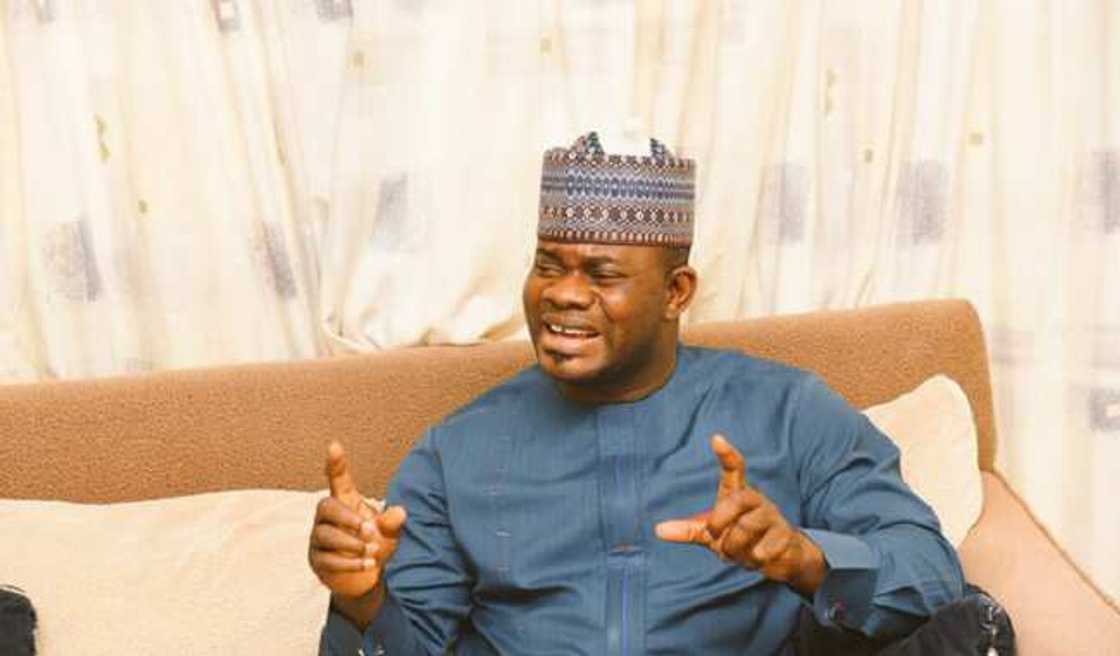Court of Appeal Restores EFCC’s Interim Forfeiture Order on Yahaya Bello’s Alleged Properties
- The Court of Appeal in Lagos has reinstated the EFCC’s interim forfeiture order on 14 properties allegedly linked to Kogi State Governor Yahaya Bello
- The appellate court ruled that immunity under Section 308 does not prevent the investigation or preservation of assets suspected to be proceeds of crime
- Justices Nimpar, Senchi, and Bassi directed the EFCC to proceed with a final forfeiture hearing, overturning a previous Federal High Court decision
In a significant legal development, the Court of Appeal in Lagos has reinstated an interim forfeiture order obtained by the Economic and Financial Crimes Commission (EFCC) to seize 14 properties allegedly linked to Kogi State Governor, Yahaya Bello.
The ruling marks a pivotal moment in the EFCC’s ongoing efforts to recover assets suspected to be proceeds of crime.

Source: Twitter
EFCC secures victory in property forfeiture case
Justice Yargata Nimpar, who delivered the unanimous judgment virtually on Wednesday, set aside an earlier ruling by the Federal High Court which had struck out the forfeiture order. The appellate court held that the lower court erred in law by relying on Section 308 of the 1999 Constitution, which grants immunity to sitting governors from civil and criminal proceedings.
Justice Nimpar clarified that while Section 308 protects governors from legal action, it does not shield properties suspected to be acquired through unlawful means. She stated that such assets can be investigated and preserved pending the outcome of a forfeiture application.
“The trial court erred in striking out the case rather than proceeding to determine whether the properties should be finally forfeited,” the court ruled.
Justices Danlami Senchi and Paul Bassi concurred with the decision, directing the EFCC to proceed to a final forfeiture hearing.
EFCC’s initial forfeiture order
The interim forfeiture order was originally granted on 22 February 2023 by Justice Nicholas Oweibo of the Federal High Court in Lagos. Rotimi Oyedepo (SAN), representing the EFCC, had argued that the 14 properties located in Lagos, Abuja, and Dubai were suspected to be proceeds of crime.
The court authorised the EFCC to temporarily seize the assets and mandated the publication of the order in two national newspapers. Interested parties were invited to show cause why the properties should not be permanently forfeited to the Federal Government.
Governor Bello’s legal challenge
Governor Yahaya Bello responded by filing a notice of intention to oppose the forfeiture and applied to vacate the interim order. He argued that the properties were acquired before his tenure as governor and therefore could not have been purchased with state funds.
His legal team invoked Section 308 of the Constitution, asserting that the EFCC lacked authority to initiate proceedings against a sitting governor.
They also contended that the Proceeds of Crime Act, 2022 could not be applied retrospectively, and that the Federal High Court in Lagos lacked jurisdiction since the properties were located outside its territorial scope.
Additionally, Bello’s counsel cited an order from a Kogi State High Court restraining the EFCC from investigating state accounts.
EFCC’s rebuttal and appeal
In response, the EFCC maintained that no Nigerian court had barred it from performing its constitutional duties. The commission argued that the properties, including a luxury apartment at the Burj Khalifa in Dubai, were reasonably suspected to be acquired with illicit funds.

Read also
Father of murdered Kwara student begs governor to sign execution warrant for convicted cleric
It also sought the forfeiture of an additional ₦400 million linked to the same investigation.
Justice Oweibo later lifted the interim order on 26 April 2023, citing Section 308 and ruling that the court lacked jurisdiction. Dissatisfied with the decision, the EFCC filed an appeal.
The Court of Appeal dismissed Bello’s preliminary objection as lacking merit and reinstated the interim forfeiture order. The EFCC has now been directed to proceed with the final forfeiture hearing, potentially paving the way for the permanent seizure of the contested assets.

Source: UGC
Witness opens up in Yahaya Bello vs EFCC case
Legit.ng earlier reported that a fresh twist emerged in the case between former Kogi state Governor Yahaya Bello and the Economic and Financial Crimes Commission (EFCC) as proceedings began at the FCT High Court on Thursday, May 8, 2025.
Nicholas Ohehomon, a prosecution witness and an auditor of the American International School, told the court that the Kogi state government did not transfer money to the school to pay Yahaya Bello's children's school fees.
Source: Legit.ng




